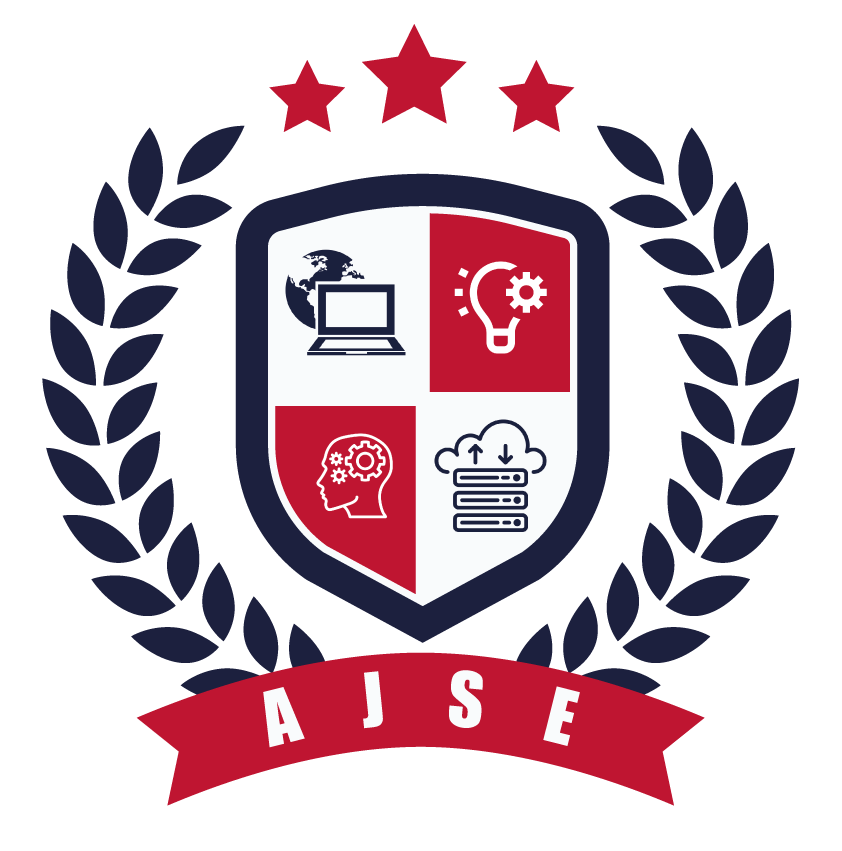Special Issues
Special Issue topics are important for AJSE journal, which deals with extremely focused topics within current interesting falling in a wide variety of journals they get published in. These special issue topics should be well crafted by recognized experts in the field of the highest quality. These proposals are welcome at any time during the year and should be submitted at [email protected].
Proposal topics for special issues should be submitted by the lead guest editor of the special issue and should include the following information upon submission:
1. Journal Special Issue intended
2. A suggested title for the Special Issue (should not exceed 15 words)
3. Proposed aims and scope, giving an overview of the special issue’s intended focus and a list of the topics to be covered
4. A list of the Guest Editors who will join the lead guest editor in managing the special issue, including their names, emails, affiliations, and a short biography (one paragraph) of each of the guest editors
5. A proposed timeline and schedule which includes:
– Deadline for submission (2-6 months from the initial Call-for-Papers)
– First round of review (2 months after submission deadline)
– Tentative publication date (2 months after the first round of review)
In order to be accept by the AJSE journal will be discussed by the journal’s editorial board. If approved, a Call-for-Papers for the topic will be issues on topic. All special issues will be issued and posted online, which are free to view by all interested readers to maximize dissemination and recognition within the scientific community. These documents can be viewed or downloaded by individuals, but are also available in an edited volume formatted as a single PDF with custom cover as well as being available for print for all readers interested.
As far as the guest editor, his main editorial task is to manage the peer review of all submitted manuscripts. His job is to recommend papers for publication only on the basis of academic merit and appropriateness of subject. In order to ensure the success of these special issue topics, AJSE generally aims to have over 20 submissions, which allows a higher rejection rate. If the special issue topic receives less than 15 submissions, we will, unfortunately, have to move papers to the regular section of the journal.
Once an article is submitted to a special issue, the lead guest editor will read over the article as an initial screening, and if the paper is of superior quality, they will need to assign it either to themselves or to one of the guest editors for further examination. The guest editor in charge of handling the manuscript will then assign it to an external referee for peer review, which consists of a minimum of 2 to a maximum of 6 independent external referees for each special issue topic paper. This will take about a week from the time they received the manuscript. Reviewers are expected to submit reports within 7 weeks. Once the reviews come back the guest editor will make a decision of either:
– Publish Unaltered
– Consider after Minor Changes
– Consider after Major Changes
– Reject
The manuscript is accepted for publication if the Guest Editor selects “publish unaltered,” and the author(s) would be notified. “Consider after Minor Changes,” is when the author(s) are asked to prepare and submit a final copy after some minor changes are suggested by reviewers. After the paper is resubmitted, the guest editor will re-read the manuscript and once they believe it is ready they will accept the manuscript.
“Consider after Major Changes,” author(s) are expected to revise and correct the manuscript according to recommended changes by the reviewers. The paper was be resubmitted in a timely manner and once it is, the guest editor will then make an editorial decision based on the previously mentioned choices. The guest editor can even decide to reject the paper forthright.
The guest editor, however, cannot review special issue manuscripts, which is done to ensure high-quality, unbiased peer-review of each manuscript submitted to the journal. This won’t be a problem since these type of manuscripts must be recommended by one or more (usually two) external reviews before publication is considered.
The peer-review is single-blinded process because the reviewers know who the authors of the manuscript are, but the authors do not know who has access to their manuscripts. Every journal published by AJSE has an acknowledgement page for the researchers who performed as a peer-reviewer on at least one manuscript over the past year. Without the significant contributions made by these researchers, the publication of the journal would not be possible.
Publisher Details
Society for Makers, Artists, Researchers and Technologists (SMART)
6408 Elizabeth Ave SE, Auburn 98092, Washington, USA
Phone: 1-425-605-0775
Email: [email protected]
